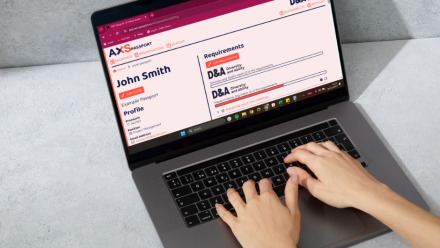What is a reasonable adjustment?
26th June 2024 by Scarlett James

All characters appearing in this work are fictitious. Any resemblance to real persons is purely coincidental.
Meet Etta, a 54-year-old Black woman working in purchasing. Etta has struggled with time management, planning, and organisational skills for years. Her daughters suspect she might have ADHD, but Etta is scared of the impact a diagnosis could have on her life.
Etta has always had to work twice as hard as her white friends in school and then in the workplace. Teachers and managers have written her off as “difficult”, and she has faced microaggressions.
She never thought she could ask for help, so she devised many ways to keep going. Her time management and planning skills were a concern during her annual review, so her manager rated her performance below average.
Etta’s line manager finally suggested some reasonable adjustments. At first glance, this looks like a good outcome. Etta struggled, but now she has support and will ask in the future.
However, there’s a deeper issue. This narrative links getting adjustments to job security, which shouldn’t be the case. Etta’s story is just one example of many, highlighting the need for better support from the start.
As our CEO, Atif Choudhury, says, ‘No one wants to be reasonably adjusted, we just want to be welcomed’.
We’re exploring how to make this the case in a six-part series of blogs alongside our monthly webinar ‘Labels and Legacies: Anticipating Adjustments’.
Let’s start by looking at the state of reasonable adjustments as it stands.
What is a reasonable adjustment?
The Equality Act 2010 is a UK law designed to protect individuals from discrimination and promote equality in different areas, including the workplace. Its purpose is to ensure that everyone has equal opportunities and is treated fairly, regardless of characteristics like disability, race, gender, or age. The Act requires employers to make reasonable adjustments for disabled employees, ensuring they can participate.
The Act defines a reasonable adjustment as:
‘Where someone meets the definition of a disabled person in the Equality Act 2010 (the Act) employers are required to make reasonable adjustments to any elements of the job which place a disabled person at a substantial disadvantage compared to non-disabled people.’
These adjustments vary based on individual needs but can include specialised equipment, adapting workspaces, or flexible working hours. For example, an employer might provide a height-adjustable desk for employees with chronic pain or allow flexible start times for employees experiencing mental health barriers.
Are reasonable adjustments working?
While it is amazing that the UK is one of few countries in the world with legislation such as the Equality Act, it still falls short.
One major issue is that it doesn’t address cultural misunderstandings of disability, which can lead to biased attitudes and practices. The Act uses terms such as “substantial” and “reasonable”, which are too vague, leaving too much room for interpretation and inconsistency in its application. Employers make insufficient accommodations because of a lack of clear standards and consistent consequences.
For instance, a disabled employee might request regular breaks as a reasonable adjustment, but it is up to the employer to decide if this is ‘reasonable’, if that person is Disabled, and if the disadvantage without that adjustment is ‘substantial’. If employers and managers don’t understand disability and the social model, they might decide against implementing certain adjustments.
The Act’s largest failure is that it is not intersectional. This oversight affects individuals who belong to multiple marginalised groups, like people of colour or LGBTQ+ communities, and often face compounded discrimination. Read more on intersectionality on our blog.
For example, someone who is disabled and a person of colour may experience discrimination because of their race and disability. The Act does not adequately address how these intersecting identities impact their experience in the workplace. This can mean individuals feeling overlooked and unsupported despite the Act’s intentions.
How can you make reasonable adjustments successful in your organisation?
Adjustments are not the foundation of inclusion in workplaces. Inclusion in workplaces should be anticipatory. This means not waiting until your team asks for support but working on fixing systemic or cultural barriers first. This could mean:
- Reviewing your physical spaces to make them as accessible as possible.
Need help? Explore our Built Environment Accessibility Audits
- Training leadership on equity, diversity and inclusion topics, making it part of every leader’s role and not just an HR responsibility.
Whether you need foundational training or are looking for something a little more advanced, we have training that will strengthen your team’s understanding.
- Creating policies that mean working inclusively is the expectation, not the exception.
For instance, captions are always enabled in meetings, meeting agendas are sent in advance and accessible and inclusive communication guidance is provided.
Working in this way means there is always a base level of support for your team, whether they feel safe enough to ask for it or not. Plus, this means that should they need something specialised, they already feel supported and safe enough to share their needs. Finally, by implementing these larger changes organisationally, you normalise adjustment conversations for everyone.
So what does this look like for Etta?
Etta applies for a new job and the company tells her they’ll send the interview questions in advance. They offered to give her a tour of the office before the interview so she can familiarise herself with the layout. They also mentioned there is a quiet room available on site. The hiring manager also shares that they may ask Etta to repeat herself as they struggle with auditory processing.
The company immediately shows Etta that they want to make the process inclusive and welcoming. She now feels safe enough to ask for additional adjustments.
Don’t know where to start?
We’ve created a tool that equips organisations with the data needed to implement this shift in approach to adjustments. It’s called AXS Passport. Get ahead of the game and start changing your organisation’s culture by creating your free account today.


